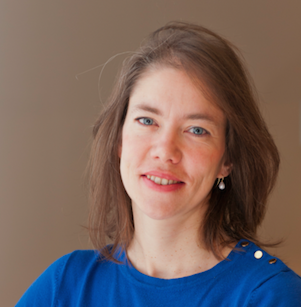Patient-specific hemodynamics simulations for interventional planning of congenital and acquired cardiac diseases

Keywords
Computational Medicine for the Cardiocirculatory System
Speaker:
Irene Vignon-Clementel
Affiliation:
Inria - France
When:
Thursday 21st January 2021
Time:
14:00:00
Where:
Online Seminar: mox.polimi.it/elenco-seminari/?id_evento=2011&t=763724
Link to recording:
Abstract:
Hemodynamics modeling has become mature enough to simulate local fluid dynamics changes due to a surgery or device implantation. However taking into account their interactions with the rest of the circulation, or even the downstream vascular bed not accessible by imaging remains challenging. We will present multi-fidelity models and computational methods that have been developed to tackle this issue for patient-specific image-based modeling. We will demonstrate through examples of congenital heart disease and coronary vascular disease how such simulations can be performed by including morphological and functional data. Finally we will discuss the advantage of combining these simulations with supervised machine learning as a tool to predict abdominal aneurysm growth risk and palliate the lack of mechanistic growth equations.
Contatto: paolo.zunino@polimi.it
Note:
Irene Vignon-Clementel is directrice de recherche (prof. equiv.) at Inria, the French National Institute for Research in Digital Science and Technology. She holds a 'habilitation' degree in Applied Mathematics (Sorbonne U., formerly U. Pierre & Marie Curie) and a PhD in Mechanical Engineering (Stanford U.). Her research focuses on modeling and numerical simulations of physiological flows to better understand a number of pathophysiologies and their treatment (surgical planning, medical device design), especially related to blood circulation and breathing. This requires developing models of different complexities, coupling them, that their numerical implementation is robust, and that their parameters are based on medical or experimental data specific to a subject. Applications include congenital and acquired cardiovascular diseases, respiratory diseases and liver pathophysiology, and more recently the interpretation of non-invasive dynamic imaging. Irene VC is member of several conference committees, of the Int. J. Num. Methods Biomed. Eng. editorial board, of the VPHi board, of the scientific advisory committee for the 3DS-FDA ENRICHMENT Project, and was co-chair of the international conference VPH2020. She received the top recipient award of the western states American Heart Association fellowship (2004-2006), the student award at the World Congress of Computational Mechanics by the USACM and the USACM Executive Committee (2006), Inria excellence awards (2012 and 2016), and has been awarded an ERC consolidator grant (2019). She has been working with companies and clinicians as a PI in a number of national and international grants such as a Leducq transatlantic network of excellence, and actively promoting the computational bioengineering and medicine interface through co-supervision of MD-PhDs, joint research projects, conference organization and interface articles with clinicians.
